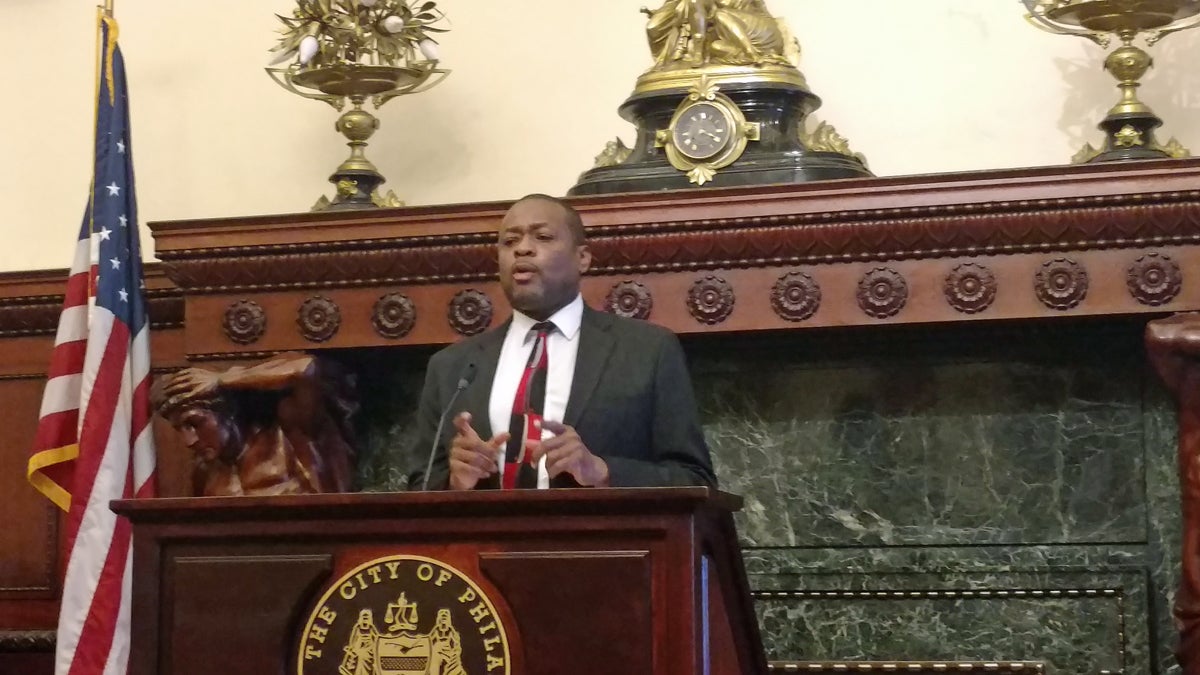Synthetic drug leads to sharp rise in Philly opioid deaths

Philadelphia's behavioral health commissioner Arthur Evans speaks at a press conference at City Hall about a more than 50 percent increase in drug overdose deaths in the last two years. (Katie Colaneri/WHYY)
Fentanyl, a synthetic opioid more powerful than heroin, is contributing to a more than 50 percent increase in overdose deaths over the last two years, according to Philadelphia health officials.
Heroin addicts often buy fentanyl from street dealers and inject it without knowing that’s what they’re getting.
According to the city’s health department, the number of overdose deaths has risen from 459 in 2013 to 701 in 2015. Overdoses involving fentanyl grew more than 600 percent from 25 deaths in 2013 to 184 last year.
And it appears programs to deal with the problem are not keeping pace.
Philadelphia’s behavioral health commissioner, Arthur Evans, said Friday the city has been spending more to expand access to treatment and hiring those who’ve experienced addiction to conduct outreach in hard-hit neighborhoods, such as Kensington.
“We have the most significant epidemic that this country has seen in terms of opioid dependence, so I think our response is to do everything we can to try to combat that,” Evans said.
This is far from the first time the city has warned about fentanyl use. About 250 people in Philadelphia died in 2006 when the drug became mixed in the city’s heroin supply.
Part of the challenge of preventing fatalities is that fentanyl is not as responsive as heroin to the antidote naloxone, which helps reverse the effects of the drug by blocking opiates in brain receptors.
The Philadelphia Fire Department responds to thousands of 911 calls for overdoses each year, and deputy commissioner Jeremiah Laster said sometimes two doses of naloxone are needed to revive someone on fentanyl.
And as the number of overdoses has risen, so has the price of naloxone, which is marketed under the name Narcan. Laster said the cost per dose of Narcan has tripled, from $13.34 in 2013 to $37.32 this year.
“It is our sincere hope that every time we respond out that we’re able to provide life-saving measures to address the patient’s immediate need and get that patient to a hospital,” said Laster. “It’s there where they’ll be able to get a further examination and get the help they need.”
However, many of them refuse to be taken to a hospital, he said.
That’s another part of the problem — the overwhelming majority of addicts resist rehab.
“Ninety percent of the people who have an addiction will not reach out for treatment,” said Evans. “Eighty percent of those people don’t recognize that they have a problem.”
WHYY is your source for fact-based, in-depth journalism and information. As a nonprofit organization, we rely on financial support from readers like you. Please give today.

